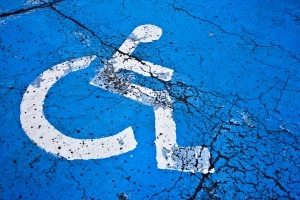 [1]Senator Reid made a motion yesterday to move the Convention on the Rights of Persons with Disabilities (CRPD) to executive session. The motion passed allowing debate to follow.
[1]Senator Reid made a motion yesterday to move the Convention on the Rights of Persons with Disabilities (CRPD) to executive session. The motion passed allowing debate to follow.
Foreign Relations committee chairman Sen. John Kerry followed with an opening statement in which he tried to assure senators that the convention would not grant any new rights to people of the U.S. The point of passing it he said is to show diplomacy and to grant greater access to disabled Americans traveling abroad.
Senator Kerry believes the U.S. has been holding back and has failed to ratify the treaty even though the U.S. was one of the major architects. What Senator Kerry failed to state is that the same concerns that prevented the U.S. from ratifying the treaty then still exist today.
Consider the following:
1. The CRPD presumes the establishment of rights contained in treaties that the United States has not ratified. This includes the International Covenant on Social, Economic, and Cultural Rights (ICESCR). These rights are not recognized by the United States Constitution, nor are provided by existing U.S. laws, such as “the right to the enjoyment of the highest attainable standard of health” (Art. 25), which includes the right to “free or affordable health care” as well as the right to an “adequate standard of living and social protection” (Art. 28).
2. The treaty and the Committee on the Rights of Persons with Disabilities support a “social” definition of the term “disability” rather than a “medical” definition. During the UN negotiations, Richard Thornburgh, former U.S. Attorney General, addressed the delegates. He stressed that even with the definition included in the Americans with Disabilities Act, the U.S. has had a hard time keeping the definition from ballooning. A social definition runs the risk of being expanded to such a degree that it will undermine the effectiveness of the law for those it is intended to protect. An expansive definition risks shifting focus away from helping people with disabilities to punishing the government or individuals for such things as “attitudinal barriers” rather than just physical barriers to the disabled.
3. It would be imprudent for the United States to ratify another UN human rights treaty until the UN treaty system is reformed. Far from trivial, the misinterpretation of UN treaties has become a major concern of UN member states. Compliance committees, also known as treaty monitoring bodies or treaty bodies, routinely act ultra vires by purporting to issue rulings in a quasi-judicial capacity. These entities expand the meaning of international instruments, without consultation or agreement by member states, disregarding the sovereignty of the nations that constituted them. Ratifying the Convention would be seen as United States approval for this modus operandi. Several countries have undertaken an effort to reform the system. Ratifying the treaty at this time will place the very leadership role of the United States in these matters in jeopardy.
4. The CRPD includes the extremely controversial term “sexual and reproductive health.” The combination of ill-defined terms and activist treaty bodies is nowhere more obvious than in the interpretation of the controversial term “sexual and reproductive health,” which negotiators did not define before including in the CRPD. This is the first time the term occurs in binding international law. The UN General Assembly has never defined the term as including abortion in either a non-binding resolution or a binding convention. Yet, because it is routinely used to include abortion anyway, the U.S. rightly sounded a note of warning in its closing statement during treaty negotiations, stating that the treaty “cannot be interpreted to constitute support, endorsement, or promotion of abortion.”
To see the entire CRPD fact sheet prepared by C-FAM’s senior VP of Research, Dr. Susan Yoshihara, please go here [2].